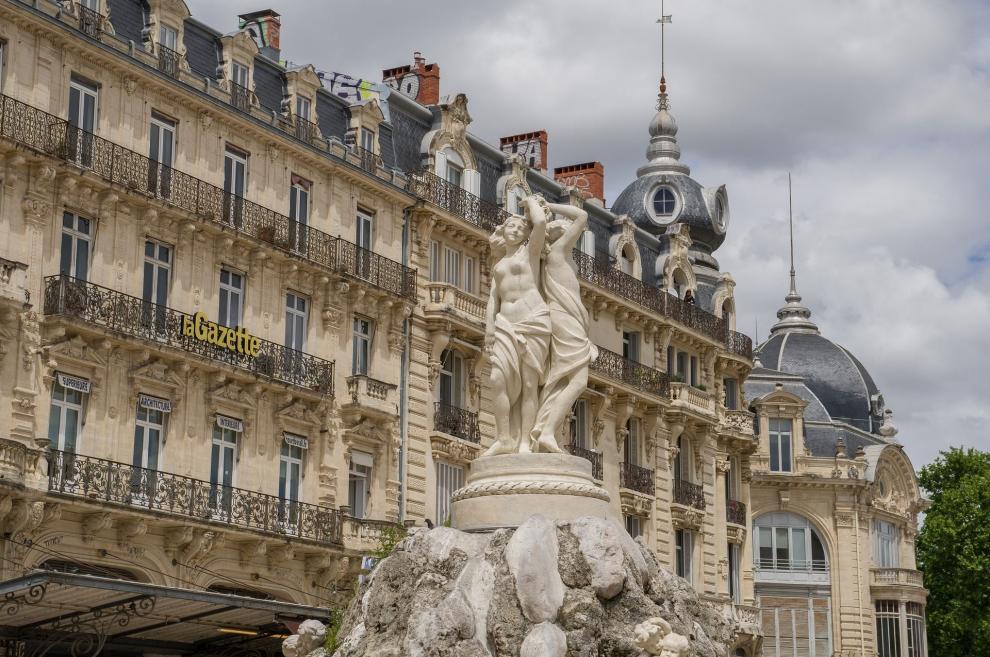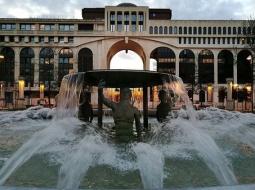Thessaloniki gets ready for its metro launch in November
The underground rapid transit lines have been under construction for almost two decades due to various project delays
 TheMayor.EU logo
TheMayor.EU logo 
Montpellier is one of the few large cities in France without any Roman heritage and also one of the few cities in Southern France without a Greek foundation.
At the time of the Reformation in the 16th century, many of the inhabitants of Montpellier became Protestants and the city became a stronghold of Protestant resistance to the Catholic French crown. In 1622, King Louis XIII besieged the city which surrendered after a two months siege, and afterwards erected the Citadel of Montpellier to secure it. Louis XIV made Montpellier capital of Bas Languadoc, embellishing the town by building the Promenade du Peyrou, the Esplanade and a large number of houses in the historic centre.
During the 19th century the city developed into an industrial centre. In the 1960s, its population grew dramatically after French settlers in Algeria were resettled in the city following Algeria`s independence from France. In the 1980s and 1990s, the city drew attention with a number of major redevelopment projects, such as the Corum and especially the Antigone District.
Montpellier is a city in southern France. It is the capital of the Herault department. Montpellier is the 7th largest city in the country and is also the fastest-growing city in France over the past 25 years. Located near the south coast of France on the Mediterranean Sea, it is the third-largest French city on the Mediterranean coast. The population of its metropolitan area is more than 560 000 inhabitants (2011). Nearly one third of the population are students from three universities and from three higher education institutions that are outside the university framework in the city.
Montpellier is the 3rd most popular congress city in France, the primary French location for public-sector research intensity: INRA, CNRS, CIRAD, INSERM, IRD and IRSTEA (National Institute for Statistics) and the 4th best business incubator in the world for start-ups.
The city has 5 excellence sectors supported by 7 competitiveness clusters:
Health: Eurobiomed competitiveness cluster; Sanofi; Horiba Medical; Bausch&Lomb.
Agronomics: Qualimediterranee competitiveness cluster; Kraft Foods Mondelez.
ICT: Optitec competitiveness cluster; IBM, Deli, Ubisoft, Intel, Free, Orange.
Environment: Derbi, Trimatec and Risques competitiveness clusters; Schulmberger, EDF Energies Nouvelles, Veolia Energie.
Water: global water competitiveness cluster; Egis Eau, Deinove, Groupe EDF Suez.

The city is a centre for cultural events as there are many students. Montpellier has two large concert venues: Le Zenith Sud (7.000 seats) and L'Arena (14.000 seats). Le Corum cultural and conference centre contains three auditoriums.
The Festival de Radio France et Montpellier is a summer festival of opera and other music held in Montpellier. The festival concentrates on classical music and jazz with about 150 events, including opera, concerts, films, and talks. Most of these events are free and are held in the historic courtyards of the city or in the modern concert halls of Le Corum.
The annual Cinemed, the International Mediterranean Film Festival Montpellier, held in the fall, is the second largest French film festival after the Cannes Film Festival. Held since 1979, it offers screenings of over 200 long and short films, documentaries, animated films, trailers, and a special program of student films. Other events include panel discussions, exhibitions, and gatherings. Venues include Le Corum and cinema halls.
1, place Georges Frêche
34267 MONTPELLIER cedex 2, France